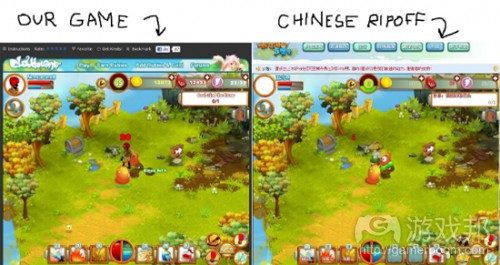中国市场对海外开发商究竟有多大商机?
作者:Jim Squires
目前,游戏开发商取得发展的关键因素便是挖掘并攻克新兴游戏市场,中国似乎就是一个充满大量机遇的市场。本周的Casual Connect Kiev大会就此问题发表了大量见解,但大家对中国市场潜力的评估究竟有多准确?
我认为这一点因人而异。
6waves首席执行官Rex Ng在本周大会上的大部分演讲均在讨论中国市场的发展商机(尤其是腾讯网络)。
Ng指出:“这是个巨大的市场,服务对象已达到5亿,而且这还只是腾讯一家公司的情况。你还应意识到中国可能还有其他5家值得关注的游戏网络公司,但单单腾讯一家便拥有大量活跃用户……事实上,他们50%的收益均来自游戏领域。现在,跃居腾讯游戏榜单前10名的游戏每月可创收300万美元。这是一笔相当可观的数目。”
然而在Ng演讲的第二天,Game Insight业务发展副总裁Darya Trushkina便提出相反观点:“我们已经尝试进军中国市场,我们目前仍在努力中。我们正在中国发行游戏,但事实上难度很大。”
其中的一些难度是,中国市场有太多行政管理规则。Ng表示:“中国制定了一系列的条条框框。你需要获得一些许可证才可以在此运营社交/在线游戏。”,并建议对方聘请中国本地员工(游戏邦注:如同他们的做法),缓解发行过程中的障碍。他继续指道:“如果你同当地人合作,游戏运营将更加稳定,因为如果你不了解中国的运作模式,那你就很难获得相关许可证。”
获得许可证并非海外开发者进军中国市场所面临的唯一障碍,他们还需要了解中国玩家的独特喜好。而这是你进军任何新市场都应解决的问题。在你试图让自己的手机游戏获得5亿玩家之前,你应仔细琢磨“了解用户”这一警告。
Ng表示:“在中国,本土化并非指游戏内容本土化,而是游戏的运作方式。中国玩家总有一些癖好——他们喜欢参加每周特别活动和比赛。他们喜欢拥有VIP系统。所以他们会购买VIP特权,接着在游戏内置交易中享受打折优惠。这些都是中国盛行的做法。”
尽管Ng提到了所有发行障碍,Trushkina表示他们仍有一个无法攻克的巨大难题——而且讽刺的是,她的这些负面看法对Ng来说却是在中国市场的制胜优势。“发行障碍不仅指中国政府制定的规章制度,以及本土化与定制化服务问题……目前你还无法与中国唯一的游戏巨头腾讯竞争。除非你与他们合作,否则你无法在中国市场立足。”
缺少竞争并非好事,但即使你肯同腾讯合作,即使你发行了一款热作,你还是会面临其它的一些问题。Trushkina指出:“如果这是一款出色的游戏,那么在中国市场推出2小时后,便会催生出至少20款仿制品。届时你将面临赔本的境地。人们会体验该游戏的其它版本,而你却无法从中获利。”
Trushkina表示,相比之下,如果你正在寻找一个新兴市场,巴西是再好不过的选择。因为他们每款Android游戏来自巴西市场的日收益占比达30%,这与在中国的“赔本”感觉截然相反。
但是,Trushkina并非完全否定中国市场的发展商机。她只是分享自己的经历以警醒其他开发商。
“我并非反对你们进军中国市场。我只是认为中国仍是目前最难以攻克的游戏市场,如果你有此打算,那就一定要小心谨慎,为你的进军之旅制定周密的计划。”(本文为游戏邦/gamerboom.com编译,拒绝任何不保留版权的转载,如需转载请联系:游戏邦)
Two sides of the story: Developer opportunities in China (Casual Connect Kiev)
by Jim Squires
Finding and conquering new markets is key to growth for any game developer nowadays. We’ve touched on the importance of looking outside of the US recently, but to put a finer point on it, the Chinese market in particular seems to be one that’s rife with potential. It’s something we’ve heard a lot about recent months, and a fair bit at Casual Connect Kiev this week — but is the assessment of China’s potential really accurate?
I suppose it all depends on who you ask.
Rex Ng, CEO of 6waves, spent a good portion of his presentation this week discussing opportunities in the Chinese market. Specifically, opportunities on the Tencent network.
“It’s a huge market. Half a billion served already, and we’re just talking about Tencent alone in China. There’s probably five other gaming networks in China that you should be aware of, but Tencent alone has so many active gamers … 50% of their revenue is actually derived from gaming,” says Ng. “Being one of the Top 10 games on Tencent right now is going to generate $3 million USD per month. That’s pretty substantial.”
But in her presentation the following day, Darya Trushkina, the VP of Business Development at Game Insight, took a somewhat contrary viewpoint: “We tried China, we’re still trying China. We’re releasing our games in China, and let me tell you right now – it’s a huge pain in the ass.”
Some of that pain seems to come from the deep level of bureaucracy that China operates under. “There’s a lot of regulation in China. You need several licenses just to operate any social/online games in China.,” says Ng. Rex suggests hiring personnel in China, as he did, to take some of the sting out of that process. “You need several licenses just to operate any social/online games in China. It’s much better if you work with a local to do that, because if you don’t understand how China operates, it’s very hard for you to get this type of licensing.”
But licenses aren’t the only problem in bringing your title to the China – Chinese gamers have some unique tastes that developers outside of the country might not be aware of. As is the case for any new market you might try to tackle, the “know your audience” mantra is one you need to have mastered before you try to get your game on the phones of half a billion players.
“For China, the localization is not really about the content of the game, it’s about how the game is operated – how the game is run,” says Ng. “They have strange behaviour – they like to have special weekly events and tournaments. They like to have a VIP system. Everyone would buy this [VIP] subscription where then they get a discount on every in-game purchase. That’s a behaviour that’s very popular in China.”
But despite all of the hurdles Ng mentions, there’s one big problem that Game Insight’s Trushkina can’t get over – and ironically, her negative seems like something that Ng would put in the win category. “It’s not just about government regulation and procedures, it’s not about localization, it’s not about customization… You cannot truly compete with only one big player in China right now, which is Tencent. And unless you partner with them, there is no way you can survive in China. It doesn’t matter who your partner otherwise is. There is nobody else.”
A lack of competition isn’t a good thing (then again, it’s not exactly like we’re talking about a capitalist country here) – but even if you suck it up and partner with Tencent – and even if your game is a hit – there are other problems too. “If your game is amazing, the second you release it in China two hours later there’s going to be at least 20 copies of your game,” says Trushkina. “You’re going to be losing money. People are going to be playing those versions of your games, and you’re not going to get any money out of it.”
By contrast, if you’re looking for an emerging market to jump into, Trushkina can’t say enough good things about Brazil. Since launching there, Brazil has accounted for 30% of daily revenue globally for each of the Android titles they’ve released in the market. It’s a far cry from her “you’re going to be losing money” feelings on China.
Still, even its strongest naysayer isn’t completely opposed to the market. Instead, Trushkina simply shares her story as a word of caution.
“I’m not saying you should not be trying to go to China. I’m just saying that China is one of the most difficult markets right now, and you need to be extremely careful if you go there, and you need to be extremely detailed in how you approach that market.”(source:gamezebo)
上一篇:分析体育类电子游戏中的视角设置









































 闽公网安备35020302001549号
闽公网安备35020302001549号